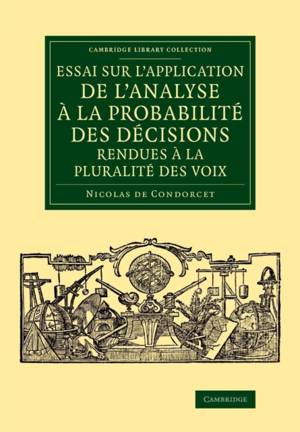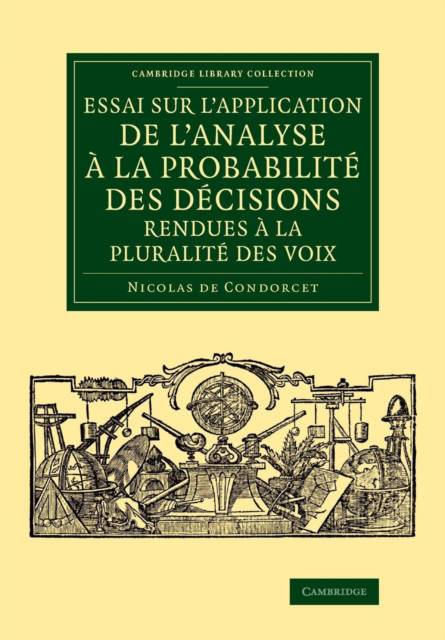
Bedankt voor het vertrouwen het afgelopen jaar! Om jou te bedanken bieden we GRATIS verzending (in België) aan op alles gedurende de hele maand januari.
- Afhalen na 1 uur in een winkel met voorraad
- In januari gratis thuislevering in België
- Ruim aanbod met 7 miljoen producten
Bedankt voor het vertrouwen het afgelopen jaar! Om jou te bedanken bieden we GRATIS verzending (in België) aan op alles gedurende de hele maand januari.
- Afhalen na 1 uur in een winkel met voorraad
- In januari gratis thuislevering in België
- Ruim aanbod met 7 miljoen producten
Zoeken
Essai Sur l'Application de l'Analyse À La Probabilité Des Décisions Rendues À La Pluralité Des Voix
Jean-Antoine-Nicolas De Carit Condorcet, Nicolas De Condorcet
€ 117,95
+ 235 punten
Omschrijving
A central figure in the early years of the French Revolution, Nicolas de Condorcet (1743-94) was active as a mathematician, philosopher, politician and economist. He argued for the values of the Enlightenment, from religious toleration to the abolition of slavery, believing that society could be improved by the application of rational thought. In this essay, first published in 1785, Condorcet analyses mathematically the process of making majority decisions, and seeks methods to improve the likelihood of their success. The work was largely forgotten in the nineteenth century, while those who did comment on it tended to find the arguments obscure. In the second half of the twentieth century, however, it was rediscovered as a foundational work in the theory of voting and societal preferences. Condorcet presents several significant results, among which Condorcet's paradox (the non-transitivity of majority preferences) is now seen as the direct ancestor of Arrow's paradox.
Specificaties
Betrokkenen
- Auteur(s):
- Uitgeverij:
Inhoud
- Aantal bladzijden:
- 504
- Taal:
- Frans
- Reeks:
Eigenschappen
- Productcode (EAN):
- 9781108077996
- Verschijningsdatum:
- 25/09/2014
- Uitvoering:
- Paperback
- Formaat:
- Trade paperback (VS)
- Afmetingen:
- 170 mm x 244 mm
- Gewicht:
- 793 g

Alleen bij Standaard Boekhandel
+ 235 punten op je klantenkaart van Standaard Boekhandel
Beoordelingen
We publiceren alleen reviews die voldoen aan de voorwaarden voor reviews. Bekijk onze voorwaarden voor reviews.









